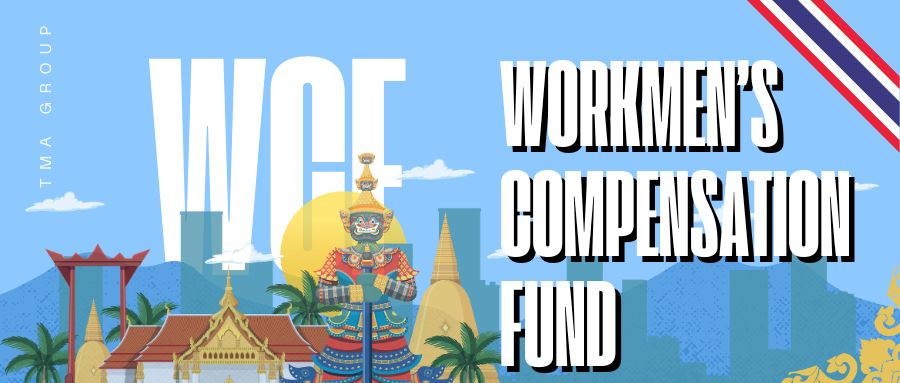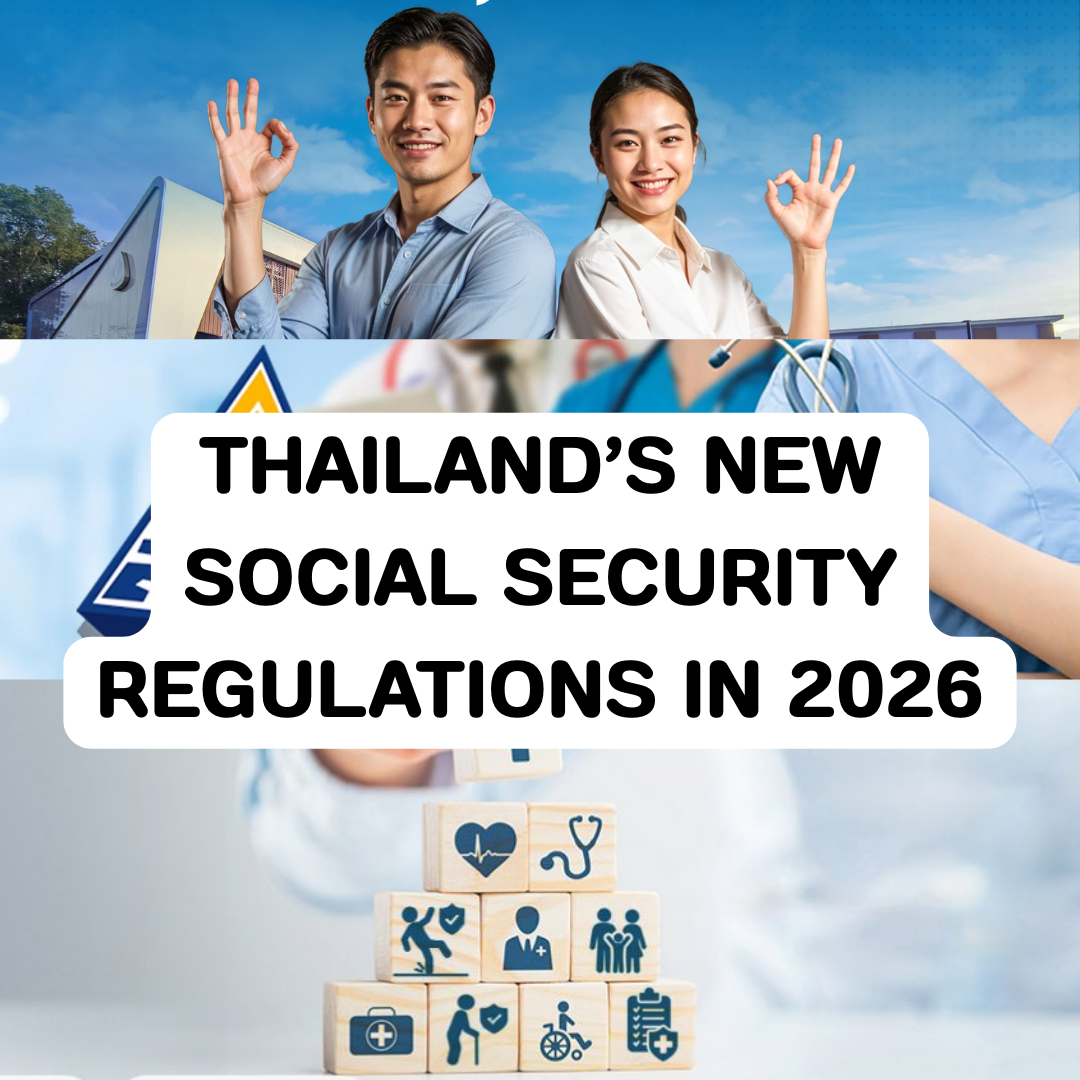BOI (Board of Investment) in Thailand
About TMA Group
TMA Group is a professional company focusing on local recruitment and corporate consulting in Thailand, dedicated to providing one-stop services including recruitment, financial management, tax disposal, legal consulting, personnel management, etc. for enterprises and individuals. If you need more advice on investment in Thailand, please feel free to contact us.
BOI (Board of Investment) in Thailand
The Board of Investment (BOI) is a government agency in Thailand responsible for promoting and facilitating investment in the country. It offers incentives to foreign and domestic investors, aiming to boost Thailand’s economic development, technology transfer, job creation, and overall competitiveness.
The BOI is under the Ministry of Industry and plays a vital role in attracting foreign direct investment (FDI) and supporting industries that are important for Thailand’s economic growth.
Here is an overview of the key aspects of BOI incentives and related information:
1. BOI Investment Promotion Program
The BOI promotes investments through a range of incentives, which can be financial, tax-related, or non-tax. The goal is to attract investments into sectors that align with Thailand's development objectives.
Key Objectives of BOI Promotion:
Attract investments into sectors that contribute to economic development, innovation, and sustainability.
Promote technology transfer and higher-value-added industries.
Enhance the competitive advantage of Thai businesses in the global market.
Encourage environmental sustainability, R&D, and workforce development.
2. Tax Incentives for BOI-Approved Projects
BOI-approved projects enjoy several tax incentives that are designed to reduce the cost of doing business and improve the profitability of investments. These incentives include:
a. Corporate Income Tax (CIT) Exemption
Full Exemption: For up to 8 years for projects that meet certain criteria, such as high-tech or strategic investment projects.
Partial Exemption: For up to 5 years for projects that are less strategic but still aligned with BOI objectives.
b. Exemption from Import Duties
Exemption on Machinery: Imported machinery and equipment for use in production are exempt from import duties.
Exemption on Raw Materials: For export-oriented businesses, raw materials for production are exempt from import duties.
c. Personal Income Tax Incentives
Exemption on Personal Income Tax for employees in certain projects, especially in research and development, or high-skilled sectors, such as IT, biotechnology, and high-tech manufacturing.
d. Other Tax Relief
Exemption from Specific Business Tax: For certain industries like banking, insurance, and other financial sectors.
Exemption from Local Taxes: For properties used in projects that are promoted by the BOI.
3. Non-Tax Incentives
In addition to tax incentives, BOI-approved projects can also receive non-tax incentives that make doing business in Thailand more attractive.
a. Visa and Work Permit Facilitation
Visa Exemption: Foreign investors and their foreign employees can benefit from easier visa processing.
Work Permit: Facilitates the issuance of work permits for skilled foreign workers who are employed by BOI-approved companies.
Multiple-entry Visas for foreign investors.
b. Land Ownership for Foreigners
Land Ownership: Foreign companies approved by the BOI may be allowed to own land in Thailand for business purposes (under certain conditions). Typically, foreigners are restricted from owning land in Thailand, but BOI promotion status can grant exceptions for certain projects.
c. Investment Guarantees
BOI provides guarantees against nationalization, expropriation, and discrimination, ensuring a stable investment climate.
d. Assistance with Permits and Licensing
The BOI facilitates government permits and licenses required for setting up businesses, reducing red tape and bureaucracy.
4. BOI Investment Categories and Eligible Activities
BOI supports investments in various sectors that align with Thailand’s development objectives. These include:
a. Manufacturing and Production
High-tech Manufacturing: Including electronics, electrical appliances, automotive, and medical devices.
Sustainable Manufacturing: Focus on green technologies, renewable energy, and waste management.
b. Service Sector
Business Process Outsourcing (BPO): Call centers, shared services, and back-office operations.
Logistics and Distribution: Transportation, warehousing, and supply chain management services.
c. Research and Development (R&D)
Innovation and Technology: Companies involved in R&D for new products, technologies, and process improvements in sectors like biotechnology, pharmaceuticals, and electronics.
d. Renewable Energy and Environment
Renewable Energy: Investments in solar, wind, and bioenergy projects.
Environmentally Friendly Projects: Projects related to waste recycling, water purification, and energy-efficient buildings.
e. Healthcare and Medical
Medical Devices: Manufacturing and development of medical equipment.
Health and Wellness: Investment in hospitals, wellness centers, and senior care facilities.
f. Digital Economy
ICT (Information and Communications Technology): Investment in software development, e-commerce, data centers, and digital infrastructure.
Blockchain and Fintech: Focus on financial technology innovation and related services.
5. BOI Application Process
The process for applying for BOI promotion involves several steps. Here’s a general outline:
a. Application Submission
Online Application: Companies must submit an application via the BOI online system with details about their business, project plans, and investment capital.
Business Plan: A detailed business plan that aligns with Thailand's development goals is required.
b. Evaluation of the Application
The BOI reviews the application based on the potential benefits of the project to Thailand’s economy, the industry’s alignment with government policy, and the project’s ability to contribute to job creation, technology transfer, or sustainable development.
Site Inspection: The BOI may conduct a site inspection or review the applicant's business operations.
c. Approval
If the project qualifies, the BOI will issue an investment promotion certificate that outlines the specific incentives granted.
The company will then be allowed to enjoy the tax and non-tax benefits related to the promotion.
d. Post-Approval Compliance
Once approved, the company must comply with BOI regulations and report periodically on business activities and performance to ensure continued eligibility for incentives.
6. BOI Benefits for Foreign Investors
Foreign investors can benefit greatly from BOI incentives. Some of the key advantages are:
a. Foreign Ownership
In most cases, foreign investors are restricted to owning only 49% of a company in Thailand. However, under BOI promotion, foreign investors can own 100% of a company (with certain conditions).
b. Funding and Capital
BOI promotions provide investors with greater access to financing, both through local and international banks, as investors are seen as more reliable partners due to their BOI status.
7. Challenges and Considerations
While the BOI offers significant incentives, there are also challenges to consider:
Strict Compliance: Investors must comply with BOI regulations, submit regular reports, and be subject to inspection by the BOI.
Eligibility Criteria: Not all projects are eligible for BOI promotion, and some activities might be excluded from incentives.
Changing Policies: The BOI’s promotional policies can be subject to change based on the government’s priorities and economic objectives.
Conclusion
The Board of Investment (BOI) plays a critical role in Thailand’s economic development by attracting foreign and domestic investments. It offers a variety of tax incentives, non-tax benefits, and facilitations to encourage investments in key sectors such as high-tech manufacturing, renewable energy, digital services, and research and development. For investors, the BOI offers opportunities to gain tax exemptions, land ownership rights, and other privileges, but it is essential to carefully evaluate the application process, compliance requirements, and long-term implications of investment in Thailand.
TMA Consulting Management has been paying attention to the updating of information through newsletters for many years, but we do not assume any responsibility for the completeness, correctness or quality of the information provided. No information contained in this article can replace the personal consultation provided by a qualified lawyer. Therefore, we do not assume any liability for damages caused by the use or non-use of any information in this article (including any kind of incomplete or incorrect information that may exist), unless it is caused intentionally or by gross negligence.













